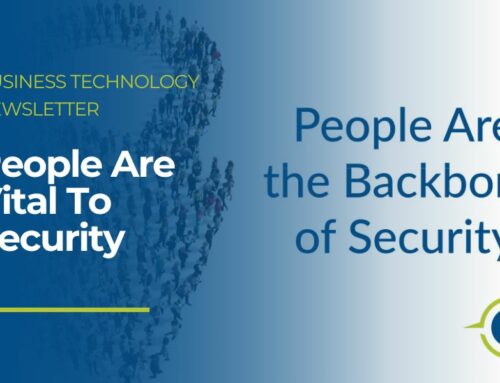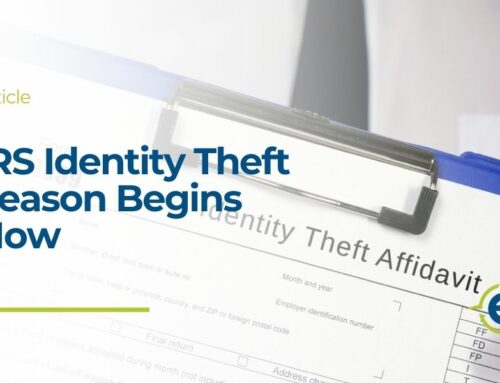Tax Scams – Part 3
In part three of the “Dirty Dozen” series, the IRS focuses on predator schemes—fake charities, immigrant/senior fraud, offer in compromise “mills,” preparer fraud, and unemployment insurance fraud. In these types of schemes, predators target honest people, tricking them into doing something illegal or stealing from them. Here are the next five scams in the IRS “Dirty Dozen.”
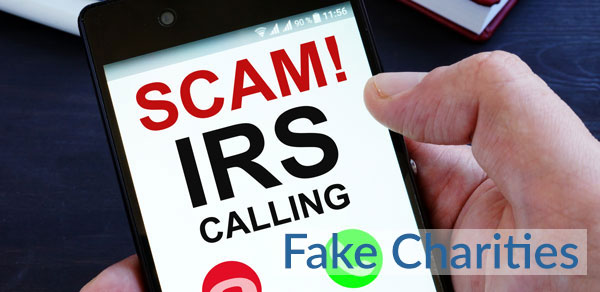
In part two of this series, we talked about fake donation scams on the internet, especially during times of tragedy or disaster—like the COVID-19 pandemic. Similarly, the IRS warns of donating to fake charities. Scammers are known to set up fake organizations and solicit donations from kind-hearted taxpayers over the phone. The IRS recommends that you always research a charity before pledging any donation. Most reputable charities will be set up as an IRS-qualified charity allowing you to claim a deduction on your taxes. The Tax Exempt Organization Search tool allows you to search for any charity you consider donating to and check if they are a qualified charity. Below are additional tips from the IRS to ensure that you are donating to a reputable charity.
- Never let any caller pressure you. A legitimate charity will be happy to get a donation at any time, so there’s no rush. Instead, donors are encouraged to take the time to do the research.
- Always ask the fundraiser for the charity’s exact name, web address, and mailing address so that it can be confirmed later. Some dishonest telemarketers use names that sound like large well-known charities to confuse you.
- Be careful how a donation is paid. Never work with charities that ask you to pay by giving numbers from a gift card or wiring money. That’s how scammers ask people to pay. Instead, it’s safest to pay by credit card or check — and only after having done some research on the charity.
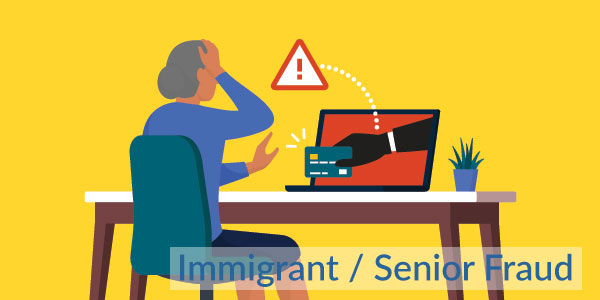
While there has been a decrease recently, the IRS still warns against impersonation scams targeting recent immigrants and senior citizens. Commonly this type of scam involves a phone call from someone impersonating the IRS threatening jail time, deportation, or loss of driver’s license. If the IRS needs to contact you about government business, their first contact with you will be done via mail—not phone. This would be your major red flag if an impersonator calls you and you have not received anything from the IRS via US mail.
The IRS offers a few different tools for immigrants and seniors. The Schedule LEP allows any taxpayer to choose their preferred language. Once submitted, all future communications will be in the selected language. Additionally, the IRS is providing tax information, forms, and publications in many languages other than English. For seniors born before Jan. 2, 1956, the IRS has re-designed Form 1040 to simplify filing taxes. This Form 1040SR for seniors can be found here.

Per the IRS, an offer in compromise (OIC) is an agreement between a taxpayer and the IRS that resolves the taxpayer’s tax debt. The IRS has the authority to settle or “compromise” federal tax liabilities by accepting less than full payment under certain circumstances. An OIC “mill” are companies or individuals that mislead taxpayers into thinking they have a chance at an OIC when they do not qualify for the program, all while charging them excessive fees. These OIC “mills” often advertise their services on the TV or radio, promising a better deal. The IRS reminds taxpayers to beware of promoters claiming their services are needed to settle with the IRS, that tax debts can be settled for “pennies on the dollar,” or that there is a limited window of time to resolve tax debts through the OIC program. If you qualify for an OIC, you can get the exact tax resolution without paying another company. Simply go to IRS.gov and review the Offer in Compromise Pre-Qualifier Tool to see if they qualify for an OIC.

Another prevalent scam impacting taxpayers is ghost preparers. This is a preparer who won’t sign the tax returns they prepare. The IRS encourages taxpayers to be wary of these types of preparers. By law, anyone that is paid to prepare a federal tax return must have a Preparer Tax Identification Number (PTIN) that is included when they sign the return. A preparer that will not sign the return is a red flag. Ghost preparers are typically trying to make a quick profit off of promising a large refund or charging fees based on the size of your refund. The IRS also shares these additional red flags:
- Requiring payment in cash only and will not provide a receipt.
- Inventing income to qualify their clients for tax credits.
- Claiming fake deductions to boost the size of the refund.
- Directing refunds into their bank account, not your account.
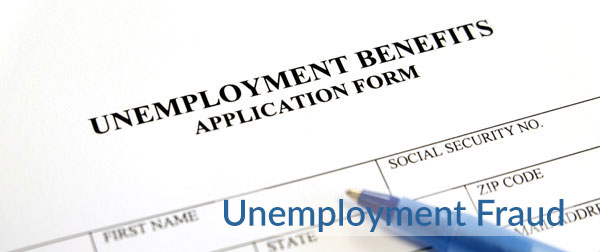
The COVID-19 pandemic left a lot of people out of work and claiming unemployment. This provided yet another opportunity for scammers—unemployment insurance fraud. These individuals are stealing information and falsifying documents to claim assistance that they are not entitled to. The IRS provided the following list of unemployment-related scams:
- Identity-related fraud: Filers submit applications for unemployment payments using stolen or fake identification information to perpetrate an account takeover.
- Employer-employee collusion fraud: The employee receives unemployment insurance payments while the employer continues to pay the employee reduced, unreported wages.
- Misrepresentation of income fraud: An individual returns to work and fails to report the income to continue receiving unemployment insurance payments, or in an effort to receive higher unemployment payments, applicants claim higher wages than they actually earned.
- Fictitious employer-employee fraud: Filers falsely claim they work for a legitimate company, or create a fictitious company, and supply fictitious employee and wage records to apply for unemployment insurance payments.
- Insider fraud: State employees use credentials to inappropriately access or change unemployment claims, resulting in the approval of unqualified applications, improper payment amounts, or movement of unemployment funds to accounts that are not on the application.





